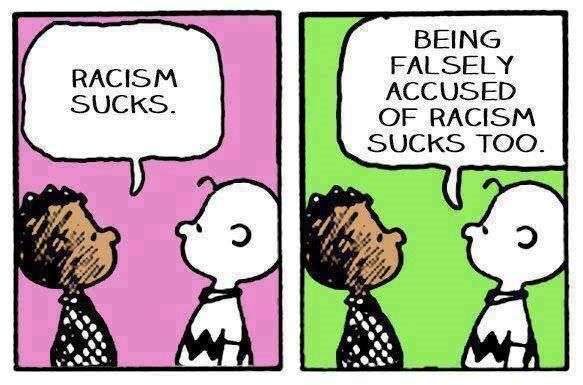“Your mind is like a parachute; it only works when it’s open,” my seventh-grade teacher counseled. That inspiration – and Mr. Rogers’ assurance that he liked me just the way I am – helped me surmount the challenges of my ugly scoliosis-correcting brace.
I told this trauma-to-triumph story when applying for school and work, and later to our son as he coped with the challenges of dyslexia. His Aspen School District teachers inspired him to Think Again – he wasn’t different; he just learned differently.
Imagine his pride when chosen to address his eighth-grade graduation where he shared his lesson that though we can’t choose what happens to us in life, we can choose how to react.
In fact, people don’t shape stories as much as stories shape people. The Jewish Peoples’ slavery-to-freedom story repeated each Passover for 33 centuries cultivated a collective resolve not just to survive relentless persecution, but to craft ethics centered on human equality, civilizing the world.
Similarly, America’s July 4th story forged a common identity derived from human history’s most revolutionary ideas – e pluribus unum (“out of many, one”) and the democratic self-rule of a free people who are “created equal.” The conviction that man-made laws must reflect natural law birthed the anti-slavery, anti-Jim Crow, and Civil Rights movements, and attracted multitudes yearning to be American.
As the lucky heir of both stories, I’m alarmed by “anti-racist” theories overtaking institutions, including K-12 schools. To advance “justice,” the book Critical Race Theory: An Introduction advocates upending our “liberal order, including equality theory, legal reasoning, Enlightenment rationalism and neutral principles of constitutional law.”
Books like Robin DiAngelo’s White Fragility and Ibram X. Kendi’s How to Be an Antiracist, popularized the absurdity that our liberal order is not systemically self-improving; it’s “systemically racist.” To address inequality, they argue, we must treat people differently based on their race.
Coining the term “KenDiAngelonians,” Black intellectuals John McWhorter and Glenn Loury call Kendi and DiAngelo neo-racist cult leaders whose illiberal ideas disempower minority children by suggesting they are unable to compete within objective standards of excellence. Who is helped by abandoning our “created equal” premise and the dreams it spawned – including being judged by our character, not skin color?
Recently, Aspen Superintendent David Baugh and High School Principal Sarah Strassburger said no to CRT in response to concerns raised about an “equity survey” administered at Aspen High. Thankfully, survey results reveal a healthy school environment.
They wrote, “Trying to meet the needs of each and every student where they are” and ensuring “all students are seen, heard, and celebrated is not Critical Race Theory,” adding, “public school educators are to be apolitical in the workplace.”
Bravo!
Indeed, lifting differently talented kids from where they are to where they’re capable of going is education’s purpose. Though our son became a reader, not all dyslexics do, even when equally supported. Considering Albert Einstein, Pablo Picasso and Muhammed Ali were dyslexics whose talents changed the world, children can surmount disparity when inspired to develop their unique potential.
Despite its official rejection in Aspen, CRT’s jargon and vague, unsubstantiated claims linger over Aspen’s Board of Education. A resolution proposed to the BoE “to foster an equitable and inclusive environment” asserts that “racism is systemic” and “rooted into our institutions, policies, and practices,” leaving many “ignored, discriminated against, and marginalized.”
With such stinging indictments, you’d expect supporting evidence, and recommendations for specific and measurable interventions. Do the resolution’s advocates agree with Kendi, that “the only remedy to past discrimination is present discrimination?”
The National Equity Project and the ASD Equity Team suggest that we evaluate “data through an equity lens” to “ensure equally high outcomes.” Though ASD’s performance metrics reveal racial disparity, how do we know racism is the cause, and why assume students in each racial category are homogenous, defined only by their race or ethnicity?
Might “systemic racism” be the wrong diagnosis, unnecessarily polarizing people while diverting attention away from specific interventions that can help students advance based on their unique circumstances and talents, thereby deriving self-respect and empowerment?
The feeling of “otherness” is the lived experience of generations of Americans, including my grandparents who overcame systemic prejudice to become the architects of their lives. Just as I’m the beneficiary of their story, might minority children benefit from stories of Black Americans who overcame unimaginable adversity to claim their “created equal” birthright?
McWhorter and Loury are in an alliance of Black intellectuals at 1776 Unites whose curriculum (rejected by ASD) is dedicated to empowering children with stories of African Americans who persevered through the harshest circumstances.
“’Yes, we can’t’ has never been the slogan of Black America and it is not now,” insists McWhorter. Nor should it ever be – a declaration worthy of any BoE resolution.
Think Again – to promote real diversity, equity and inclusion, shouldn’t we inspire students to recognize that they’re created both equal and different, and valued just the way they are?

